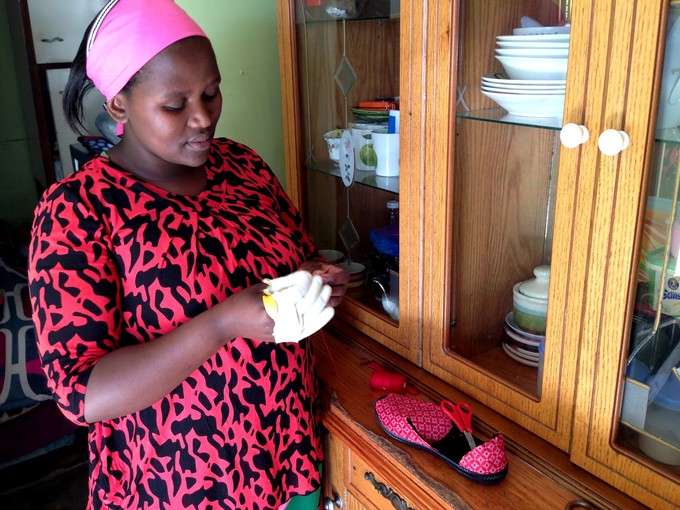Getting a shoe in with business
Asinazo Mzimeli has started a shoe-making business in her shack in Philippi
It was 25-year-old Asinazo Mzimeli’s embarrassing experience of not having money to buy shoes to wear to a traditional event over Easter that made her get into the business of making her own shoes.
“I didn’t know what I was doing and I didn’t know how the shoes were going to come out. I just wanted to have something to wear,” says Mzimeli.
But when she wore the shoes she had made herself she received many compliments. People asked her where she had bought them.
“They didn’t believe me when I said I made them myself,” says Mzimeli.
She still keeps that first pair of shoes as a reminder of where she started. At the time, she had spent two years looking for a job.
Mzimeli stays in a three-room shack with her husband, two children and her brother in-law in Brown’s Farm, Philippi. Her youngest child is ten months old.
As she does not have machinery to make shoes from scratch, she buys the cheapest tommy shoes she can find for R60 a pair. She then cuts the tops into different designs and glues on traditional material, usually worn by newlywed Xhosa brides. Once the glue dries, she starts adding accessories.
The material she uses costs R42 a metre, and then there are bonding materials, shoelaces, needles, buttons and thread. It takes up to two days to make a pair of shoes. She does all the sewing by hand and has to wear gloves to prevent getting blisters.
She sells the shoes for R180. Sometimes she goes to Nyanga junction to sell them, but most of her customers are from word of mouth. She makes about 15 pairs a month. She has been operating for five months.
“If I didn’t have to wait for the glue to dry it would take one day and I would be able to make more shoes,” says Mzimeli.
She would love to buy herself a machine that could enable her to make the whole shoe from scratch.
“I know I would make a lot of money if I made the whole shoe. People keep telling me to buy a machine, but right now I can’t afford it,” says Mzimeli.
Support independent journalism
Donate using Payfast

Don't miss out on the latest news
We respect your privacy, and promise we won't spam you.
© 2016 GroundUp. 
This article is licensed under a Creative Commons Attribution-NoDerivatives 4.0 International License.
You may republish this article, so long as you credit the authors and GroundUp, and do not change the text. Please include a link back to the original article.

